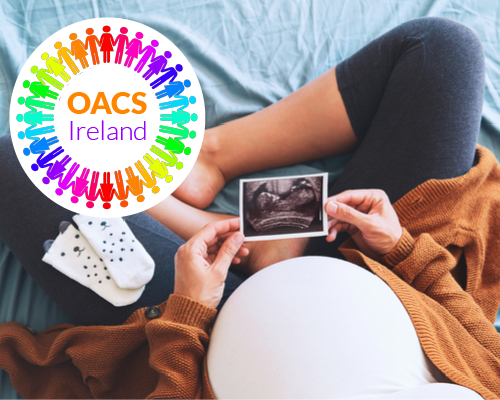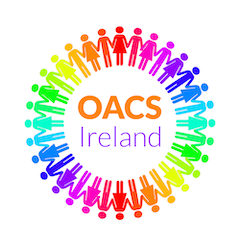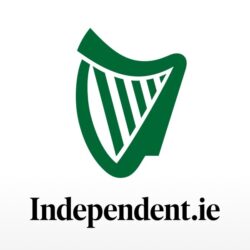OACS - Who Are We?
OACS Ireland was a voluntary group that was set up in 2017. OACS Ireland have now received Charity Status, we provide support, help, and advice to other families, whose children have been affected by Foetal Anti-Convulsant Syndrome (F.A.C.S) in Ireland.
Our Mission
The Purpose of OACS Ireland is to ensure that people living with FACS and their families will experience better recognition, improved public health services, and support.
How We Can Help
We are here to support all families impacted by Foetal Anti-Convulsant Syndromes (FACS). Foetal Anti-Convulsant Syndrome is caused when the anti-convulsant medicine a woman takes during pregnancy affects the foetus.
FVS - Foetal Valproate Syndrome is a range of devastating birth defects that can occur from the side effects of taking an anti-epilepsy or other drugs which contain valproic acid (VPA) during pregnancy. Despite studies dating back to the 1980’s, both industry and national governments across the world (including Ireland), were slow to act on overwhelming evidence of the side effects of such drugs, including Epilim. Progress on addressing this issue is thanks to the advocacy of one Irish parent, Karen Keeley. Thanks to Karen and the patient advocacy group she founded, the Organisation for Anticonvulsant Syndrome (OACS) Ireland, combined with a European Medicines Agency judgement in February 2018, there are now considerably heightened warnings about the dangers of FVS.

Important: Please do NOT STOP taking your medication without speaking to your Health Care Professional.
Our Core Values
Accountability
We take responsibility for using our resources efficiently, achieving measurable results, and being accountable to supporters, partners and, most of all, children.
Collaboration
To enhance the capacities of its members through information, exchange, networking, mutual support, and potentially joint actions.
Respect
To represent its members and people living with a Foetal Anticonvulsant Syndrome at large, throughout Ireland.
Creativity
We are open to new ideas, embrace change, and take disciplined risks to develop sustainable solutions for the organisation.
What is F.A.C.S?
Foetal Anti-Convulsant Syndrome is caused when a mother uses anti-convulsant medication during pregnancy. (also known as Anti-Epileptic Drugs, or AEDs.) AEDs are not only used to treat epilepsy but are also used to treat pain, migraine, bipolar, mental health and other conditions.
One of the challenges that can occur for the pregnant mother with epilepsy is that some mothers tend to have more severe seizures during pregnancy. As a result of this, some doctors will up the dosage during the pregnancy which can make the foetus more susceptible to problems during pregnancy.
The risk of disability varies according to the specific drug taken; however, there are some patterns to be seen in all cases.
The risk for any one drug is about 6 out of 100 (that is double the background level of risk). The risk increases with the number of drugs. This means that babies of women taking two or more AEDs have between 10-14 out of 100 risk of being born with a problem. For those taking the combination of valproate, carbamazepine and phenytoin, the risk can be as high as 50 out of 100.
There is also evidence that taking a larger dose of antiepileptic medication carries a greater risk for the baby. Babies of mothers taking more than 1 g per day of valproate have more than twice the risk of congenital malformations, compared with those exposed to 600 mg or less.
In relation to FVSD/ FVS is a rare condition that occurs when a baby is exposed to VPA (brand names include Epilim Depakene, Convulex, Depakote, Encorate, Valpakine, etc) during the first trimester VPA crosses the placenta and interferes with normal development causing developmental abnormalities in the fetus and malformations. Fetal valproate syndrome (FVS) may occur if a developing baby is exposed to valproic acid during pregnancy. Valproic acid, also known as valproate, is a medication that is often used to treat epilepsy, bipolar disorder, and migraines. Many babies who are exposed to this medication during pregnancy are born healthy with normal growth and development. However, studies have found that women who take valproate during pregnancy have a greater chance of having a baby with a major birth defect or other health problem. Symptoms of FVS vary but may include characteristic facial features, spina bifida, congenital heart defects, cleft lip and/or cleft palate, genital abnormalities, skeletal abnormalities, and developmental delay. A child exposed to valproic acid may be at a higher risk for learning and behavioral problems which include ADHD, Autism. Although there is no cure for FVS, FVSD and/or FACS, many of the possible signs and symptoms of FVS do have treatments or therapies available. Early intervention programs may also be helpful.
Epilim (Sodium Valproate) has a history of adverse developmental effects. The drug is unusual in that its teratogenicity in humans was predicted from animal studies, without any knowledge of mechanism (Brown et al., 1980; Kao etal., 1981).
Valproic acid, first marketed in Europe in 1967, appeared to be without adversity to development over the initial 13 years following marketing. Then, in the early 1980s, Dalen’s and her associates made the initial association of VPA to birth defects (Dalen’s et al., 1980; Dalen’s, 1981). They reported an infant who died at 19 days of age, was growth retarded, and who had multiple malformations of the face and brain, heart, and skeleton, among other defects. The mother of the infant had taken 1000 mg/day of VPA throughout gestation. These observations were followed by several case reports and other publications attesting to the malformation effects of the drug when administered to a pregnant mother during gestation.
Some characteristics of foetal anticonvulsant syndrome involve the following areas: spina bifida; cleft lip and palate; facial and skull; limb defects; ear malformations; skeletal malformation; heart, kidney, urinary tracts, and sexual organ malformations, developmental delay, facial features, low muscle tone, Social Communication Disorder, Autism Spectrum Disorder, Attention deficit hyperactivity disorder (ADHD) Speech and Language, Growth and general health, Joint hypermobility, Genitourinary defects. OACS Ireland will provide a full list of FACS conditions to new our website shortly.
If you would like to become a member of OACS Ireland, we would encourage you to fill in the following form and send it back to OACS Ireland Email address: office.oacsireland@gmail.com
If you would like to donate to OACS Ireland, please feel free to Download Membership Form for the OACS Ireland Bank Details.
News & Resources
Submission Delivery to the Sodium Valproate Inquiry
The submission on behalf of OACS Ireland has now been hand delivered to the offices of the Sodium Valproate Inquiry, located at 7-8 Mount Street Upper, Dublin 2. This formal delivery took place at 11:00 am on Monday morning, 15…
More . . .Jo Campion Unites Mothers Affected by Sodium Valproate
OACS Ireland and their members recently attended it’s second meeting with Jo Campion, Clinical Psychologist, which served as a gathering for mothers and families impacted by valproate exposure. The purpose of the session was to provide a space where participants could openly share their experiences, challenges, and wants for the future.
More . . .Jo Campion – Senior Clinical Psychologist to support and assist families partaking in the Sodium Valproate Inquiry.
The Chair of the Sodium Valproate Inquiry has appointed Jo Campion – Senior Clinical Psychologist to support and assist families partaking in the Inquiry. The upcoming meeting will commence with a smooth registration process, during which attendees can enjoy a…
More . . .‘It was meant to help my epilepsy but it destroyed my family’ – parents hope long-awaited inquiry will finally provide answers
Amy Molloy 23rd July 2025. Irish Independent Newspaper OACS Ireland are grateful to the Irish Independent Newspaper and to all journalists who have helped us highlight our cause! Families affected by an anti-epilepsy drug that can cause serious birth defects…
More . . .Sodium valproate inquiry begins after two-year wait
By Michael McHale 22nd July 2025 The Government’s intention to run a non-statutory review of the epilepsy drug was first announced in July 2023 More than one year after its chair was appointed, the Minister for Health has today announced the commencement…
More . . .Minister for Health welcomes the commencement of Sodium Valproate Inquiry
Press release Minister for Health welcomes the commencement of Sodium Valproate Inquiry From: Department of Health Published on: 22 July 2025 Last updated on: 22 July 2025 Review Phase Personal Statements Health Service Capacity More information Minister for Health Jennifer Carroll…
More . . .





